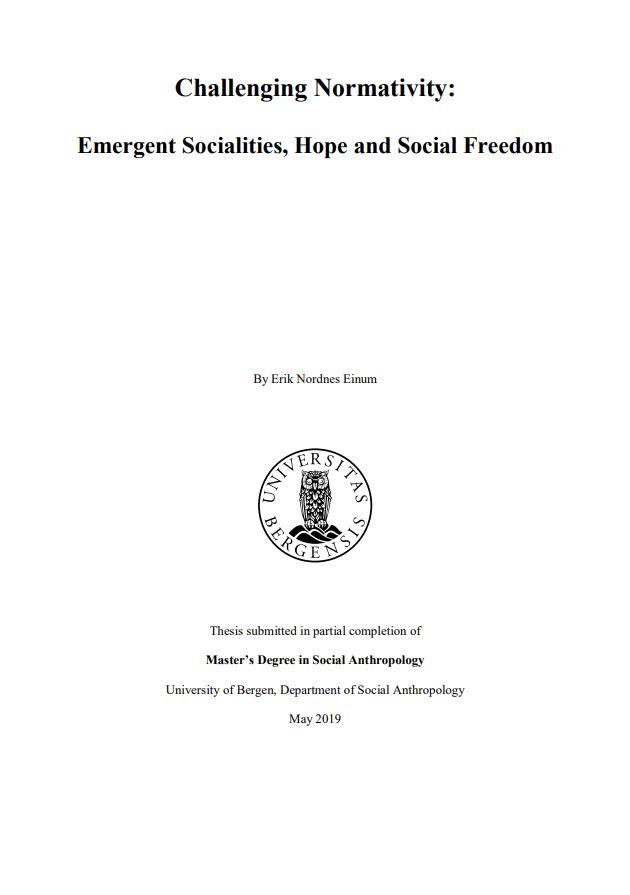Challenging Normativity: Emergent Socialities, Hope and Social Freedom
Main content
Master's thesis submitted at Department of Social Anthropology, spring 2019.
By: Erik Nordnes Einum
Supervisor: Professor Tone Bringa
This thesis is about sociality, identity, social practices and relationships in LGBT+ communities in New York City (NYC). The main interlocutors in this thesis are young LGBT+ identifying persons. Some of them are experiencing periods of homelessness after being rejected by their parents or home communities because of their sexual orientation. Others are middle-class, fully employed LGBT+ persons with more stable everyday lives. This thesis is also about sexuality, and I ask how and why sexuality becomes important in U.S. society, and how it has shaped the experiences of my interlocutors. I employ “emergent socialities” as a way of understanding the social life of the persons in this thesis. “Emergent socialities” combines “sociality” as understood by Henrietta L. Moore and Nicholas J. Long (2012), and “emergence” by Raymond Williams (1977). Also, building on Marcia Inhorn and Emily Wentzell’s elaboration of “emergent masculinities” (2011), I argue that the concept of “emergent socialities” can account for ongoing changes in people’s social relationships, which may depart from more established forms of sociality. By delving into the history of NYC’s LGBT+ community and the interlocutors’ experiences of rejection and alienation, I argue that imagination and hope are central human capabilities that create the possibility for new socialities to emerge. Furthermore, I argue that these hopes and imaginations are oriented towards the future, and a future society, which may be more utopian in its promises.
